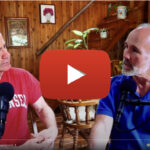Church for people, not people for church
Read time: 3:05Not long ago, a car pulled up in front of Sorn and Gik’s house. A young man knocked on their door and asked if he could learn about the Bible. Mee had been interested in Christianity and found Sorn and Gik’s address via a Google search for “church near my home.” He began following Jesus that very day.
Sorn and Gik have been growing a new church in their community in far eastern Bangkok. Most recent believers are young–from age 12 into the twenties. Until a few months ago they conducted traditional Sunday services in a rented room. When they lost the use of that space, we began talking about a different approach.
The approach Sorn is now trying – and liking – centers on the individual. He creates a “whole life” growth plan with each mentee (like an Individual Education Plan, or IEP). From there, he can design group teaching plans and Bible studies that fit common needs.
Rethinking “Sunday Morning or Bust” Gathering
Research and experience show that young people are most open and responsive to the Gospel. With 99% of Thai children growing up in Buddhist or Muslim homes, young adults like Mee seem most likely to question and search.
But the young adults of Thailand are busy. Those who pursue university are part of an academic system that highly emphasizes extracurricular learning and activities. Those who enter the work force without high education typically have retail jobs with required evenings and weekends, six days a week, often with an inconsistent shift schedule. Getting a group of young people together is difficult; gathering consistently is nearly impossible.
With the “IEP” model, Sorn can meet one-on-one, in small groups, or online to have meaningful connections that fit into the schedules of the young adults.
Rethinking “One Size Fits All” Teaching
The individual approach flips the traditional, historically Western church model entirely on its head. The group-centric model of doing church works when people live in homogeneous, local communities, especially when the bulk have Sundays off. You could preach one sermon to the whole group and it would make sense. In a 7-day-economy melting pot, it doesn’t. So most churches pick one flavor, or one demographic, and don’t worry about the misfits.
In a heavily Christian area with multiple church options, maybe that’s not a big deal – people can find a church that fits their needs. But in Christian-starved Thailand, options are far too few. You can’t leave someone out and assume they will find another group. They will likely be left out of fellowship and discipleship altogether.
Rethinking “Discipleship Optional”
There is more value to this person-centered approach than including people: the quality can be better, too. Instead of general sermons and Bible lessons, Sorn’s young disciples are getting tailored instruction. With the whole life approach, they get guidance in not only reading and learning about the Bible, but actually living it. “So much fun,” they often report.
These “IEP’s” are holistic, applying Bible to life situations. For example, one way to address the work/life balance is small business, where young adults can have more autonomy and choice setting their schedule and priorities. Pea, 23, has become Sorn’s “Timothy,” both mentee and ministry partner. With Sorn’s support and coaching, Pea sells barbecued meat at a nearby market and has ample free time to learn from Sorn at his home and accompany him on ministry visits. Selling food also provides Pea with a natural opportunity to learn to reach others.
Church is a Community, not a Location
Without another location, Sorn and Gik’s small home has become the hub, and it now has a reputation in their neighborhood as “The Christian House.” Sorn and Gik pray for the time when God provides a new gathering place, especially given that their small living/dining room can squeeze in maybe 15 people. In the meantime, they’ve made some interesting community connections to find good ways to gather.
However, they see this time as an opportunity to foster church as a growing network of true disciples of Jesus. We celebrate these relationships and moments of growth, while also aware that the risk of focusing on a small number is that things can go south in a hurry. However, our hope is this depth of discipleship will produce width via multiplication. These young followers are talking to and even bringing friends. Pea has been so transformed from his delinquent life that his mom is asking questions.

